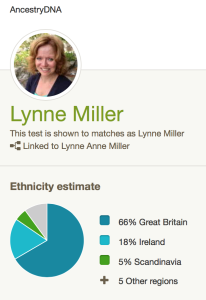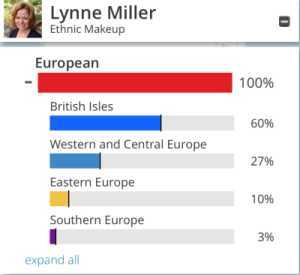Ethnic identity is complicated if you are adopted.
As a late discovery adoptee, I thought for most of my life that I was a mix of Polish and German ancestry. After I found out I was adopted, I learned my biological ancestors were primarily Irish. Then on St. Patrick’s Day, I discovered I may not be all that Irish after all.
As I checked my email on the subway last week, I saw the message from Ancestry. “Your Ancestry DNA results are in!” Excited, I opened the message, and clicked on the analysis of my ethnic makeup. Much to my surprise, Ancestry estimates my Irish-ness to be merely 18 percent. About two-thirds of my ancestry can be traced back to England, Scotland and Wales.

Ethnic Origins Can be Misleading for Adoptees
A while ago, I wrote about discovering and embracing my Irish roots. Discovering you have a different ethnic identity is a common phenomenon for late discovery adoptees. We grow up believing what our parents tell us and find out, as adults, that the truth is something entirely different.
My Polish-German identity started to crumble once I learned, at age 38, that I was adopted. Still, I didn’t abandon the Polish and German identity until a DNA test made it official.

I also confirmed my heritage, or so I thought, with blood relatives. My biological sister, Michelle, told me our mother, Lillian was Irish. A cousin who is a genealogist suggested our family’s oldest known ancestor was an indentured servant from Ireland who immigrated to Maryland in the 1700s. I had to be at least 50 percent Irish.
Of course, not knowing anything about my father and his relatives leaves a big hole in my story.
Also, the science of determining ethnic origins is evolving. DNA test companies only provide estimates of ethnicity. I can’t take those percentages too seriously. Besides, being English, Scottish and Welsh isn’t all that different from being Irish, right?
Have you heard conflicting things about your roots? I’d love to hear your stories.
